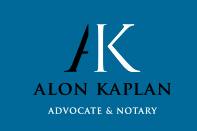
Steering private trusts in Israel requires understanding the complex interplay of Israeli inheritance laws, including the lack of forced heirship rules. By establishing private trusts while complying with Israeli regulations, you can guarantee effective asset protection and family wealth transfer. Trusts, especially post-Amendment 147, provide flexibility in appointing Israeli residents as trustees, aligning trust structuring with tax efficiencies. If you continue, you’ll discover more about private trusts as succession alternatives within these legal frameworks.
Key Takeaways
- Israeli Succession Law allows private trusts but imposes restrictions, voiding domestic trusts upon the settlor’s death.
- Israel lacks forced heirship rules, enabling freedom of testation and customized private trust structures.
- Trusts in Israel must comply with legal documentation and registration requirements for validity.
- Amendment 147 facilitates Israeli residents acting as trustees without negative tax implications.
- International trust strategies can mitigate complications with foreign assets under different inheritance laws.
Understanding the Impact of Israeli Succession Law on Private Trusts
While Israeli Succession Law 5725-1965 acknowledges the existence of private trusts, it imposes significant restrictions upon them, particularly impacting their viability as tools for long-term succession planning.
Under Section 8, trust establishment is undermined because domestic trusts become void upon the settlor’s death, causing assets to revert to the estate for distribution under will or intestacy laws. This reversion compromises asset protection, as the legal structure doesn’t recognize trusts as separate entities, which complicates their utility. The absence of inheritance tax since 1981 reduces the perceived need for trusts in asset protection and estate planning, with many families previously relying on wills instead.
Although Israeli Trust Law regulates trust establishment and administration, it falls short for complex asset protection and succession. Alon Kaplan’s firm, known for its expertise in trust law in Israel, provides valuable insights into navigating these complexities.
Recent amendments allow Israeli residents to act as trustees without incurring negative tax consequences, providing some control retention, yet these constraints limit the effectiveness of private trusts for succession planning.
Navigating Forced Heirship Rules With Foreign and Testamentary Trusts
Israeli Succession Law’s constraints on private trusts prompt individuals to explore alternative strategies for circumventing restrictive provisions, especially concerning succession planning.
With no forced heirship rules, Israel offers freedom of testation. However, complications arise when foreign assets are involved. Employing foreign trust strategies can mitigate these challenges, particularly under EU Succession Regulations or other international laws where forced heirship might apply. Foreign Residents Trusts are tax exempt in Israel, but this exemption only applies to income generated outside of the country, emphasizing the need for clear separation and management of assets across jurisdictions.
Inheritance trust structures must be crafted with precision, considering strict taxation and classification rules, especially for Israeli beneficiaries. Trusts in Israel have a rich history, drawing from Ottoman and British Mandate periods, which influences current practices and provides a framework for setting up effective inheritance structures.
While Israeli courts recognize foreign wills for Israeli assets, they must meet validation requirements.
Maneuvering these complexities requires careful planning to optimize succession outcomes while ensuring compliance with both Israeli and foreign legal frameworks.
Taxation and Compliance Considerations for Private Trusts
As the landscape of taxation and compliance for private trusts in Israel evolves, understanding the new requirements is essential for both trustees and beneficiaries. Starting from the 2025 tax year, trustees must submit annual reports to the Israeli Tax Authority, detailing controlling individuals, regardless of tax residency. These reports are vital, as trust classifications—such as Israeli Resident Trusts or Foreign Resident Trusts—determine tax obligations. If you’re involved with a trust, remember that Israeli Resident Trusts face taxation on worldwide income, while Foreign Resident Trusts are taxed only on Israel-sourced income. With stricter transparency rules from January 2026, even non-taxable trusts must report controlling individuals. The concept of estate planning in Israel often involves using trusts and hekdesh, which are recognized as efficient instruments for managing succession and mitigating complexities across jurisdictions. This increased transparency prevents tax evasion, reinforcing compliance across all parties involved. The new legislation mandates annual reports from trustees of taxable Israeli trusts starting in the 2025 tax year, underscoring the importance of adapting to these changes to avoid penalties and ensure compliance.
Leveraging Amendment 147 for Control and Tax Efficiency
To optimize control and tax efficiency in the domain of private trusts, leveraging Amendment 147 of the Israeli Income Tax Ordinance is crucial. This amendment allows Israeli residents to act as trustees or protectors, granting you the ability to maintain trust control without incurring negative tax repercussions. By structuring trusts where family members are involved in governance, you can guarantee flexibility and compliance with forced heirship rules. Tax optimization is achieved as trust income is taxed based on the residency of these controlling individuals, not automatically on the trust itself. Additionally, Amendment 147 enables the use of international tax treaties, thereby preserving tax advantages while maintaining asset protection. With the abolition of the foreign settlor trust status under Amendment 197, it becomes even more vital to align trust structures with the residency and involvement of family members to optimize their classification and tax implications. Israel’s legal system, equipped with modern legislation on inheritance and estate planning, supports such strategic approaches. This strategic approach enhances both control and tax efficiency within Israeli legal frameworks.
Structuring Trusts to Circumvent Succession Limitations
Building on the framework of Amendment 147, structuring private trusts in Israel offers a strategic avenue to navigate the constraints imposed by forced heirship laws.
By carefully selecting trustees and leveraging asset protection strategies, you can minimize the impact of these limitations.
- Trustee Selection: Choose foreign trustees to influence residency classification, potentially reducing local tax burdens and forced heirship application.
- Asset Protection: Use trusts to shield assets from direct heirship claims, as they aren’t considered part of the estate under Israeli law. According to the Development of Trusts in Israel, the historical evolution of trust concepts plays a crucial role in understanding how trusts can be effectively utilized in estate planning.
- Geographic Strategy: Set up foreign resident trusts, distancing assets from Israeli jurisdiction and forced heirship constraints. Since Israeli inheritance laws are governed by the Succession Law of 1965, establishing foreign trusts can provide an effective means to protect assets from local legal restrictions.
- Control Restrictions: Limit settlor and beneficiary control over the trust to maintain its classification as a non-Israeli entity, preserving its protective benefits.
Legal Challenges and Documentation Practices in Trust Establishment
Establishing private trusts in Israel involves maneuvering a complex landscape of legal challenges and meticulous documentation practices. You’ll need to guarantee trust documentation is thorough and aligns with legal compliance requirements. Essential documents include the trust deed, which must clearly specify the trustee, beneficiaries, and asset details. If a Private Trust Company is involved, registration with the Registry of Companies is necessary, adhering to Israeli corporate law. Compliance with beneficial ownership disclosure and timely tax submissions is vital. The Israeli Income Tax Ordinance dictates trust tax classifications, and any missteps can lead to penalties. Trustees must also adhere to Israeli Trust Law, guaranteeing trust documents outline their duties and powers, protecting both asset integrity and beneficiary rights. Establishing a Private Trust Company in Israel requires adherence to governance structures that resemble corporations, including having a board of directors, to ensure effective management and compliance. The firm of Alon Kaplan offers comprehensive legal advice to navigate these complexities, ensuring that private trusts are established and managed in compliance with Israeli and international laws.
Best Practices for High Net Worth Families in Wealth Transfer Planning
When planning wealth transfer for high net worth families in Israel, it’s important to incorporate strategic structures that effectively balance control and ownership. Given the Israeli Inheritance Law, which ensures equality among heirs in estate distribution, families should consider how to structure their estates to honor this legal framework while achieving their personal objectives. Implement wealth preservation strategies by using hybrid structures, such as combining trusts with holding companies, to separate property rights from control rights. Family governance frameworks can facilitate a seamless transfer of wealth while maintaining family values and objectives.
- Separate voting rights from economic ownership to allow younger generations to benefit economically without immediate management roles.
- Utilize discretionary trusts to tailor distributions according to beneficiaries’ needs, promoting financial responsibility over time.
- Leverage training and mentoring programs within family businesses to prepare successors before transferring control.
- Maintain equality in property rights among heirs, allocating control based on suitability and readiness.
In certain cases, consulting with experts such as Advocate & Notary Alon Kaplan can provide valuable insights into structuring trusts effectively within the context of Israeli law.
These practices facilitate effective wealth transfer and succession planning.
Frequently Asked Questions
What Are the Common Pitfalls When Setting up Private Trusts in Israel?
When setting up private trusts in Israel, you encounter pitfalls like trustee responsibilities and tax implications.
Trustees must align with trust objectives while maneuvering through complex tax laws. You’ll face challenges if you retain too much control, risking trust invalidation.
Tax implications are significant; Israeli taxation on trust income can be severe. Verify compliance to avoid double taxation.
Clear documentation and careful trustee selection are essential to manage these complexities efficiently.
Can Private Trusts Protect Assets From Creditors Under Israeli Law?
Private trusts can protect assets from creditors under Israeli law by legally separating trust assets from your personal property. This reduces creditor claims, as formal ownership lies with trustees.
Irrevocable trusts enhance protection, as you relinquish control, making creditor access challenging. Discretionary trusts add another layer by complicating entitlement clarity.
However, guarantee compliance with legal structuring and avoid suspicious transfers, as these can undermine asset protection and invite legal scrutiny.
How Do Private Trusts Impact Family Relations and Dynamics in Inheritance Planning?
Private trusts greatly influence family relations and dynamics, especially in inheritance planning. By clarifying trust dynamics, they can improve family communication, reducing misunderstandings and conflicts over asset distribution.
Trusts define roles, such as trustees and beneficiaries, fostering structured interactions. However, they might also create tensions if members feel excluded or if control dynamics shift.
Effective communication strategies are essential to manage expectations and responsibilities, ensuring trust arrangements align with family goals and values.
What Role Do Cultural Factors Play in the Acceptance of Private Trusts?
When considering the acceptance of private trusts, cultural attitudes and religious beliefs play a significant role.
You see that Israeli society values transparency and directness, aligning with private trusts’ clarity.
However, religious beliefs vary among ethnic groups, influencing their comfort level with modern legal instruments.
Some might prefer traditional methods due to these beliefs, while others embrace the flexibility trusts offer, reflecting a balance between cultural norms and practical succession planning.
Are There Specific Industries Where Private Trusts Are More Prevalent in Israel?
In Israel, private trusts bloom like flowers in spring within the real estate and technology sectors.
These industries, bustling with activity, often see trusts used for strategic wealth management and succession planning. In real estate, trusts handle property succession, protecting assets from creditors.
Meanwhile, in the technology sector, where rapid wealth accumulation occurs, trusts facilitate multi-generational transfers, safeguarding family interests.
Both sectors utilize trusts to navigate complex legal and tax landscapes effectively.
Conclusion
By understanding Israeli succession laws and strategically using private trusts, you can efficiently manage your wealth transfer while guaranteeing compliance with forced heirship rules. Despite concerns about complexity, trusts offer flexibility and control over asset distribution, allowing you to protect and preserve your family’s wealth. By staying informed about legal considerations and leveraging legislative amendments, you can navigate potential challenges and implement effective wealth planning strategies for future generations. This approach guarantees both compliance and financial security.

